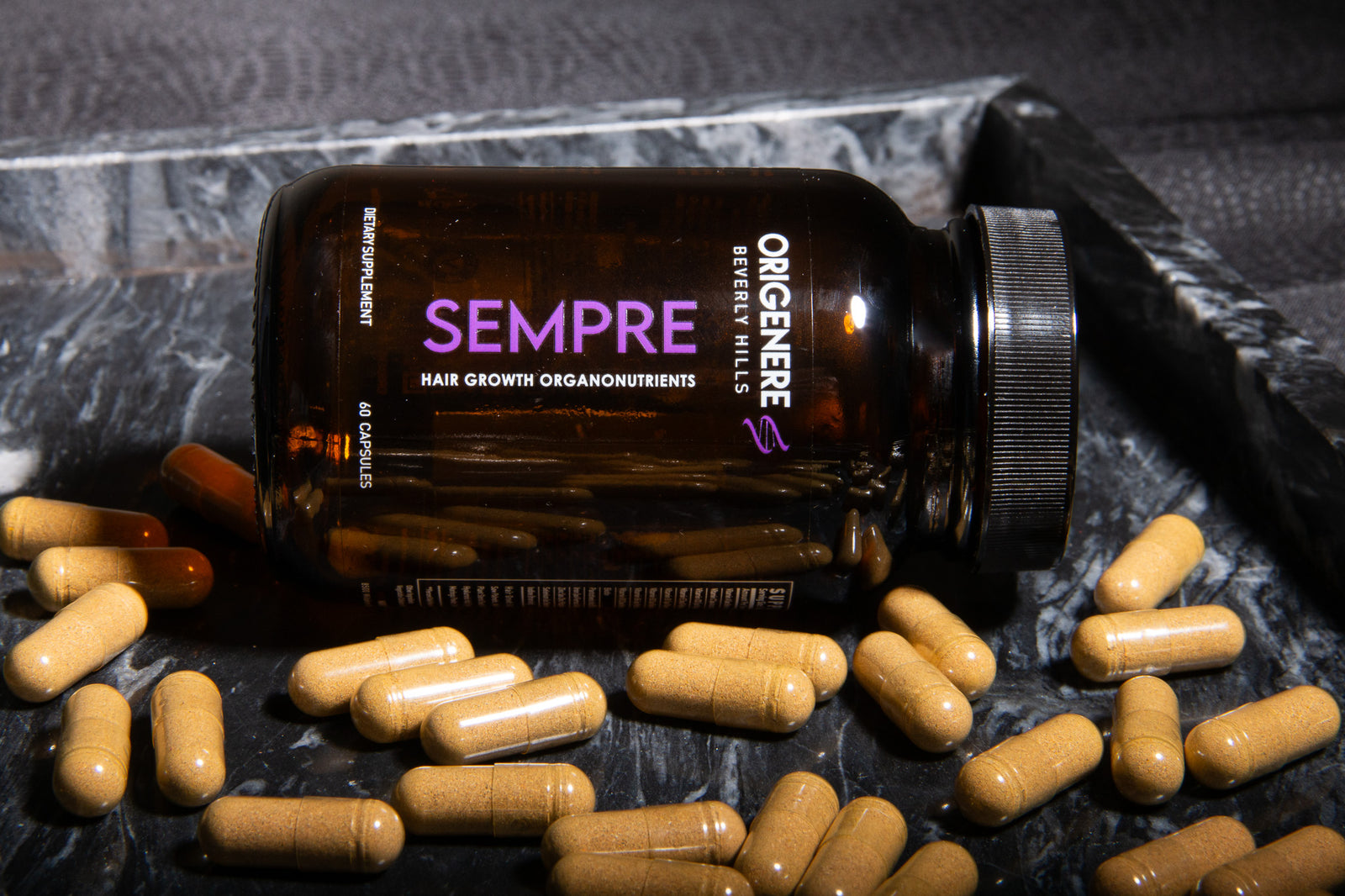Reasons for Dry Scalp: Summer Tips and Natural Remedies

Reasons for Dry Scalp: Summer Tips and Natural Remedies
Do you find yourself scratching your head more often? A dry scalp can be more than just a minor annoyance—it can disrupt your daily life, causing discomfort and embarrassment. Unlike dandruff, which often involves larger, oily flakes, a dry scalp usually presents small, dry white flakes and an unrelenting itch. So, what are the reasons for dry scalp?
Several reasons for dry scalp include changes in weather, harsh hair products, and underlying skin conditions. The summer heat can exacerbate these issues, but don’t worry— there are natural remedies such as peppermint oil, and aloe vera that offer relief. Keep reading to explore why your scalp may be dry and how these natural solutions can help you maintain a healthy scalp this summer.
Understanding the Reasons for Dry Scalp
Dry scalp can be a persistent and often frustrating condition that affects many people. It can be triggered by various factors, from environmental changes to underlying health issues. Understanding the differences between dry scalp and dandruff, as well as recognizing common symptoms, can help in managing and treating this condition.
Dry Scalp vs. Dandruff
Dry scalp and dandruff might seem similar at first glance, but they have distinct differences. Both conditions can cause flakes and itching, but the causes and symptoms vary.
- Dry Scalp: The primary cause of a dry scalp is the lack of moisture. This can be due to cold weather, excessive washing, or using harsh hair products. The flakes from a dry scalp are typically small and white.
- Dandruff: Dandruff, on the other hand, is usually caused by an overgrowth of a yeast-like fungus called Malassezia. This condition results in larger, oily flakes that can be yellow or white. Unlike dry scalp, dandruff is often associated with an oily scalp.
Common Symptoms of Dry Scalp
Dry scalp manifests through several noticeable symptoms. Recognizing these symptoms can help in seeking appropriate treatments and remedies.
- Itching: One of the most common symptoms of dry scalp is constant itching. This occurs because of the lack of moisture, which causes the scalp to become irritated.
- Flaking: Small, white flakes are often seen on the scalp and shoulders. These flakes are usually dry and fall off easily.
- Redness: The scalp can become red and inflamed due to excessive scratching and irritation.
- Tightness: Some people may also feel a tight or stretched sensation on their scalp, indicating dryness.
For further information on symptoms and treatments, visit Cleveland Clinic's guide on dry scalp.
Top Reasons for Dry Scalp
Dry scalp can be both irritating and frustrating. The reasons for dry scalp can range from your environment and daily habits to your diet. Understanding these reasons for dry scalp can help you address the root cause and find effective solutions.
 Environmental Factors
Environmental Factors
Changes in weather, especially during the summer, can have a huge impact on the health of your scalp. Here's how environmental factors can contribute to a dry scalp:
- Weather Changes: Extreme temperatures, whether it's the blazing sun or cold winds, can strip the scalp of its natural oils. In the summer, prolonged sun exposure can dry out the scalp, while cold weather can reduce moisture levels.
- Air Conditioning: During hot months, we often rely on air conditioning to keep cool. However, air conditioning can pull moisture from the air, leading to a dry environment that affects your scalp.
- Exposure to Harsh Chemicals: Pool water containing chlorine or even certain hair dyes and styling products can irritate and dry out the scalp.
Lifestyle and Hair Care Habits
Your daily habits and the products you use can be reasons for dry scalp:
- Use of Certain Hair Products: Some shampoos and conditioners contain harsh ingredients that can irritate the scalp. Avoid sulfates, parabens and harsh chemicals. Look for products with natural ingredients, like those containing rosemary, tea tree oil, peppermint oil, and aloe vera, which can help soothe and hydrate the scalp.
- Heat Styling: Using hairdryers, straighteners, and curling irons frequently can dry out the scalp. Heat styling tools remove moisture not just from your hair, but also from your scalp.

Health and Dietary Influences
Your overall health and what you consume play crucial roles in maintaining a moisturized scalp:
- Diet: Eating a balanced diet rich in omega-3 fatty acids, vitamins, and minerals with a rainbow of fruits and vegetables is essential for a healthy scalp.
- Hydration: Drinking plenty of water is key to keeping your scalp from drying out. Dehydration can lead to dry skin, including the scalp.
- Underlying Health Conditions: Conditions such as psoriasis or eczema can cause dry scalp. These conditions often require specific treatments and should be managed under a medical professional's care.
To learn more about the best fruits and vegetables for scalp health and hair growth: Best Fruits and Vegetables for Hair Growth.
Understanding the reasons for dry scalp is the first step to finding the right solution. By addressing these factors, you can take better care of your scalp and enjoy a healthy, itch-free head of hair.
Natural Remedies for Dry Scalp
Are you struggling with a dry, itchy scalp? You're not alone. Many people turn to natural remedies to help soothe and treat their dry scalp. Below are some effective and natural solutions that can bring relief.
Rosemary Oil
Rosemary oil is a fantastic remedy for dry scalp due to its anti-inflammatory and circulation-boosting properties. By improving blood flow to the scalp, rosemary oil helps to deliver essential nutrients to hair follicles. This not only promotes hair growth but also ensures that the scalp remains healthy and hydrated.

To use rosemary oil:
- Mix a few drops with a carrier oil like coconut or olive oil.
- Massage into your scalp for about 5-10 minutes.
- Leave it in for at least 30 minutes or overnight for best results before washing it out.
Using rosemary oil can also reduce scalp irritation and help with conditions like dandruff. Learn more about the hair and scalp benefits of Rosemary here.
Tea Tree Oil
Tea tree oil is well-known for its antifungal and antimicrobial properties, making it an excellent choice for treating dry scalp. It helps to combat any infections or fungi that might be causing dryness and itching.
- Combine tea tree oil with a carrier oil or add a few drops to your shampoo.
- Massage the mixture into your scalp.
- Rinse thoroughly after letting it sit for a few minutes.
Regular use of tea tree oil can help soothe the scalp and keep it free from infections and irritations. This guide on tea tree oil for dry scalp has more information.
Peppermint Oil
Peppermint oil provides a cooling sensation that can give instant relief from itching and irritation. Its soothing properties make it an effective remedy for a dry and itchy scalp.
- Dilute peppermint oil with a carrier oil.
- Apply to the scalp and massage gently.
- Rinse after 15-20 minutes.
The menthol in peppermint oil increases blood flow and promotes hair growth, helping to keep your scalp healthy. Click to learn more about scalp and hair benefits of peppermint oil.
Aloe Vera
Aloe vera is renowned for its hydrating and healing properties, making it an excellent remedy for dry scalp. It not only moisturizes the scalp but also soothes any irritation or inflammation.

- Extract fresh aloe vera gel from the leaf.
- Apply directly to the scalp.
- Leave it on for about 20-30 minutes before washing out.
Aloe vera can help maintain the scalp’s pH balance and keep dryness at bay. For more detailed information, visit the benefits of aloe vera for dry scalp.
Using products that focus on natural ingredients like rosemary, tea tree oil, peppermint oil, and aloe vera can help soothe and hydrate the scalp. Consider switching to a shampoo and conditioner designed to treat balance the scalp microbiome and promote scalp health.
It's important to note that while these benefits are supported by various studies, more comprehensive research is needed to fully understand and confirm the efficacy of aloe, rosemary, tea tree and peppermint oil in these areas. Additionally, always consult with a healthcare provider before starting any new supplement regimen, especially if you have existing health concerns or are taking other medications.
Seasonal Considerations
Understanding how different seasons affect your scalp is key to keeping it healthy. Summer, in particular, can be harsh on your scalp due to intense heat, UV radiation, and frequent swimming activities.
Summer Hair Care Tips
When summer arrives, it brings with it challenges like sunburn, chlorine damage, and excessive sweating. Here are some practical tips to protect your scalp and maintain its health during the hottest months:
- Use Sunscreen for Your Scalp: Just like your skin, your scalp needs protection from the sun. Spray or rub sunscreen onto your part lines and exposed areas to prevent burns and dryness.
- Wear a Hat: A wide-brimmed hat not only protects your scalp but also shields your hair and face from sun damage.
- Rinse After Swimming: Chlorine and saltwater can strip natural oils from your scalp. Rinse your hair with fresh water immediately after swimming to reduce dryness.
- Hydrate and Moisturize: Drinking plenty of water keeps your body hydrated, which benefits your scalp as well. Consider using leave-in conditioners or aloe vera gels to maintain moisture balance.
For more on healthy scalp tips, check out Nurturing Your Scalp: Tips for a Healthy Scalp.
Adjusting Hair Care Routines:
In summer, it’s essential to tweak your hair care routine to combat dryness. Your current hair care products themselves can be reasons for dry scalp. Here are some adjustments you can make:
- Choose the Right Shampoo and Conditioner: Opt for products that are sulfate-free and contain hydrating ingredients like aloe vera and tea tree oil. These ingredients help soothe and moisturize the scalp.
- Cold or Lukewarm Water Rinses: Hot water can further dry out your scalp. Stick to cold or lukewarm water when rinsing your hair to minimize irritation.
- Deep Conditioning Treatments: Use a deep conditioner once a week to provide extra hydration. Ingredients like aloe vera and coconut oil can penetrate the scalp and replenish lost moisture.
By following these tips for summer hair care and making small adjustments to your routine, you can keep your scalp healthy and hydrated, even in the hottest weather!

Conclusion
A dry scalp can be uncomfortable, but understanding its causes and effective remedies can lead to relief and healthier hair. By incorporating natural ingredients like rosemary oil, tea tree oil, peppermint oil, and aloe vera into your hair care routine, you can treat and prevent dry scalp issues.
Key Takeaways
- Identify the Causes: Environmental factors, lifestyle habits, and underlying health conditions can all contribute to reasons for a dry scalp. Knowing these causes can help target the right solutions.
- Differentiate from Dandruff: Unlike dandruff, which is often due to an overgrowth of yeast-like fungus, dry scalp is primarily a result of lack of moisture.
- Natural Remedies: Utilizing natural ingredients can soothe and hydrate your scalp. Rosemary oil boosts circulation, tea tree oil fights infections, peppermint oil provides a cooling effect, and aloe vera offers hydration and healing.
- Seasonal Adjustments: Adjust your hair care routine according to the season to maintain scalp health. For instance, protect your scalp from sunburn during summer and use moisturizing products to combat dryness.
Understanding reasons for dry scalp and Implementing these insights into your daily routine can help you keep your scalp healthy and comfortable.
Sources:
Dandruff: the most commercially exploited skin disease
Skin Microbiome Alterations in Seborrheic Dermatitis and Dandruff: A Systematic Review
Treatment of Dandruff with 5% Tea Tree Oil Shampoo
Seborrheic Dermatitis and Dandruff: A Comprehensive Review
Novel Topical Treatment for Dandruff and Dry Scalp Through Sustained Balance in Skin Microbiome





Leave a comment